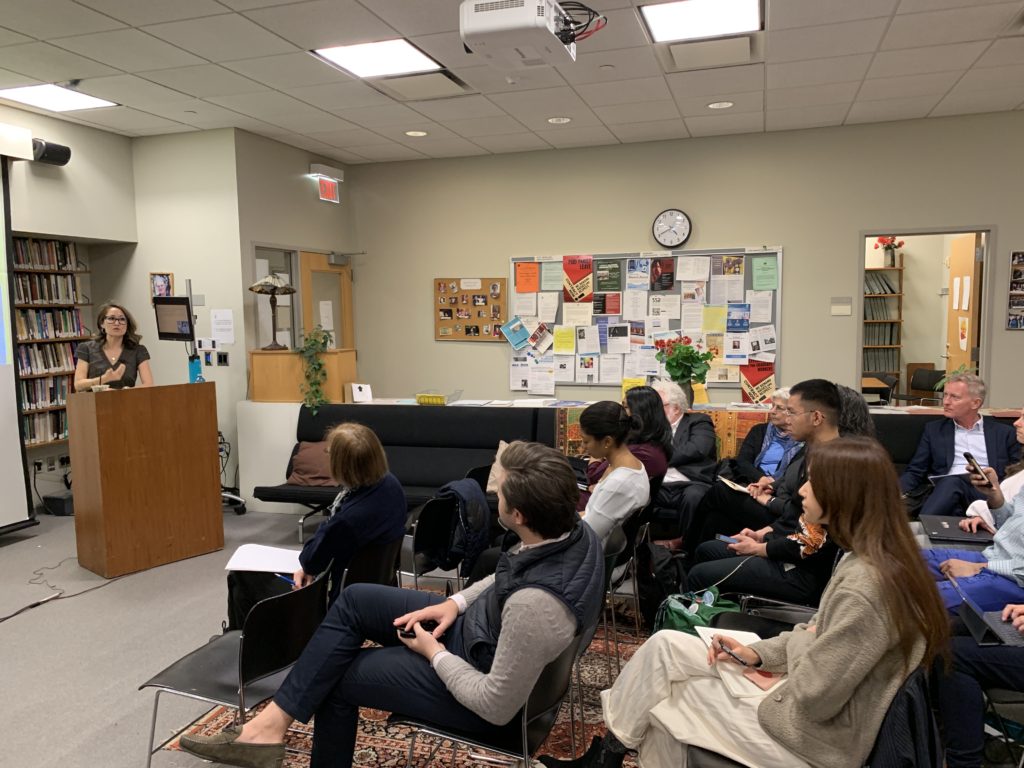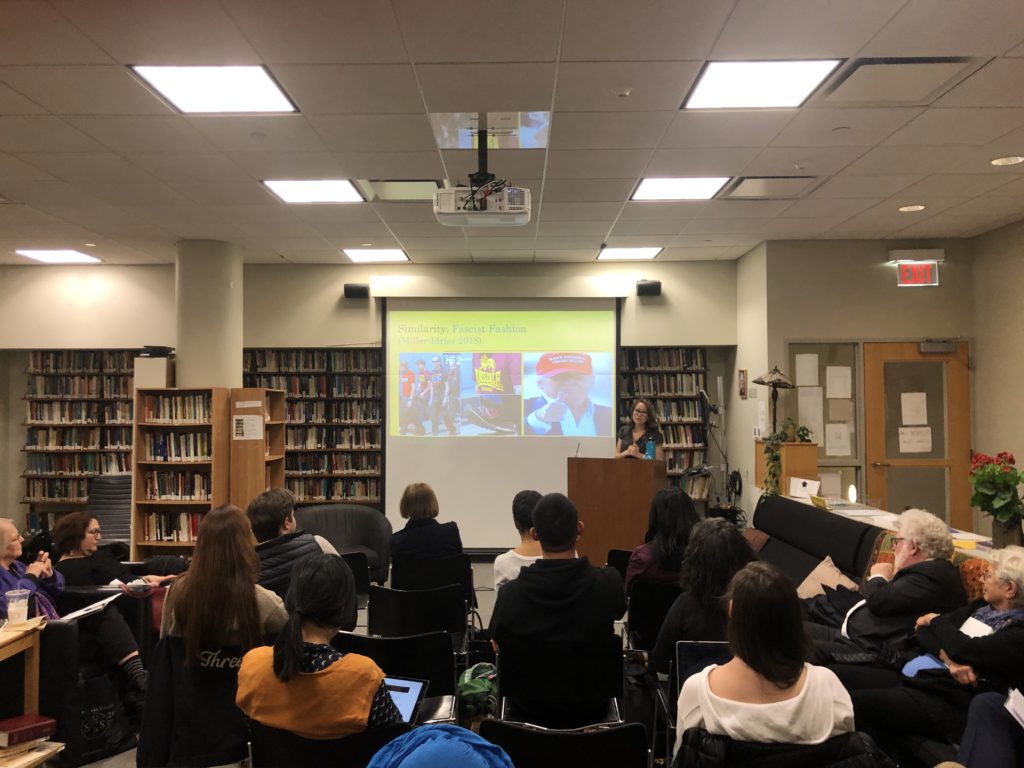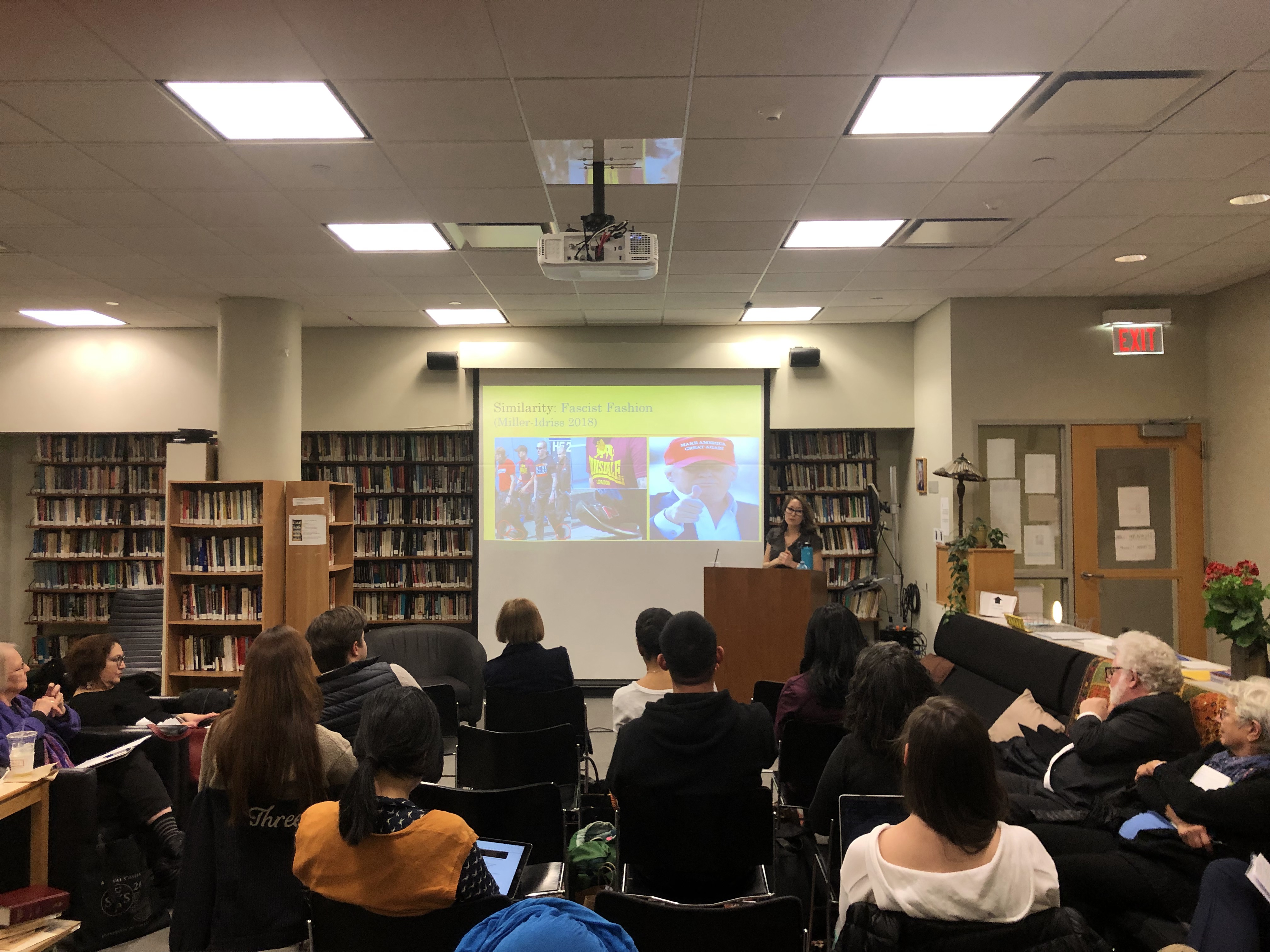April 11, 2019
4:30pm to 6:30pm
CUNY Graduate Center
365 Fifth Avenue, 6th Floor, Room 6112, Manhattan

This talk will address how US racism pivots as much on nativist injustices – suffered mostly by Latinx, Asian American Pacific Islander (AAPI), and Middle Eastern ethnics – as it does on injustices specific to Black Americans. Prof. Nadia Kim evidences the point by way of research on Latinx and AAPI immigrant activism, as well as an analysis of the rise of Donald Trump. Although sociology has certainly given a nod to nativistic racism, mostly in relation to the Latinx population, its core theories, frameworks, and methodologies have not centered “the citizenship line”; as such, it has not defined sociology the way the color line has. Yet, the racialized insider/outsider axis has long separated “us white Americans” from the brown brother, terrorist, war-time enemy, socioeconomic threat (e.g., academic threat), exotic seductress, anchor-baby maker, and maternity tourist. As this list of representations reveals, gender, class, and the body are also interrelated with race, and all are vital to the remaking of citizenship by the mostly Mexican and Filipin@ immigrant activists whom Prof. Kim studies in Los Angeles. Not only would a citizenship-centered sociology best grasp their efforts and the implications thereof, but, in my view, would have also predicted the arrival of the Trump era, the other focus of her talk.

Prof. Kim contends that, despite our discipline’s concern with anticipating social trends and with predictive statistics, mainstream sociology did not foresee resurgent racism in the United States, and certainly not in the form of white nationalism; it was fixated instead on the “black/nonblack” divide or the inclusion of Latinx, Asian, and Middle Eastern ethnics into the White racial category. Among others, we should have been interrelating the following processes of nativist racism, and doing so within the context of neoliberal economic neglect: the ascendancy of European far-right populism (which I argue Trump mimicked); the anti-immigrant and “Black-lash” sentiment of the Tea Party movement (including anti-Muslim/birther racism against Obama); the popularizing of the “majority-minority America” statistic; and the related rise in hate activity online, in hate group formation, and in hate crimes. Critique of the discipline, Prof. Kim concludes, will only serve to strengthen it.
Co-Sponsor
CUNY Graduate Center Immigration Seminar Series

